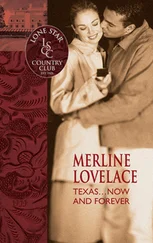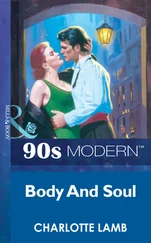He backed down the hallway toward the bedroom like a floor-waxer making for the exit. The glass of water with fresh ice in it was already sweating. A handful of bullet-shaped pills spilled across a magazine, covering Condoleezza’s face. He had scooped half of them into his cupped hand when the phone rang. What if it was Dolly? He should answer it. He should answer it just to say good-bye — not that she’d know what he was doing. He would make sure the conversation went well — he wouldn’t say anything about the discarded birth control pills or the receipt from the expensive shop. He picked up the phone, practicing the perfect tone to use in his head, but before he could say anything, he was surprised to hear the voice of his old company leader, Captain Sinclair.
“Yes sir,” he said when Sinclair asked him if he was doing okay. “Yes sir,” he said when Sinclair asked him if he thought much about the war.
“I owe you an apology,” said the captain, to which Danny replied, “Yes sir.”
Danny was so surprised he sat down on the bed, but then he jumped up again because he didn’t want to rumple the new coverlet. He still didn’t know why Sinclair was calling.
“Guess what?” shouted Sinclair. “I’m here with Joe Kelly and Le Roy Jones.”
“Here with Kelly and Le Roy? Where’s here?”
Captain Sinclair had never really liked Joe Kelly, and Danny hadn’t really liked him either. Danny didn’t like hotheads, but perhaps Danny would like him now, since now Danny was a hothead too.
“I’m here in Oklahoma with Kelly and Le Roy. We’ve got a plan and we’re headed over to pick you up.”
She told me my clothing was made by Indonesian child-slaves. I said, “Good lord, Maggie. And where do you think that cup of coffee came from?” That stopped her in her tracks. That’s the closest I ever came to making her cry.
— Valerie Vines
I saw her the day she came up to the house to talk to Houston, and right away, I knew I was looking at someone special. That’s when I decided to kick my MoMs group into a higher gear.
— Tiffany Price
All of a sudden Maggie stopped talking about saving the world. She talked about weeding her garden. She talked about cleaning her house.
— Misty Mills
That’s when I knew she was up to something. I have a sense about these things, and that was a surefire sign.
— True Cunningham
At first it was only rumors: things were missing; prisoners were innocent. And then, as you very well know, some fresh-faced reporter started nosing around.
— Lucas Enright, proprietor of the Main Street Diner
That first newspaper article didn’t mention Maggie by name, but it was only a matter of time before they found out who it was.
— Jimmy Sweets
7.1 Maggie
By August, Max Gray’s file was so full of documents that Maggie had to create another, which she labeled “Mickey Grant.” And her dresser drawer was so full of what she called evidence that she had to move the sweaters to a shelf in her closet. “Spring cleaning!” she announced when Lyle asked her what she was doing.
“It’s not spring, it’s summer,” said Lyle.
“My goodness,” said Maggie. “I’m behind.” But something had shifted, and inside Maggie, it was spring. It was as if she had spent the past twenty years not only keeping house and mothering, but also training for some clandestine project that was so top secret, even she hadn’t been told what it was. Still, her intuition told her that a revelation was coming and that she had better be ready when it did.
She received a letter from George’s lawyer saying that Tomás’s documents had been received and forwarded to an attorney in another state, since cases had to be handled in the correct jurisdiction. Every time she tried to write a letter to Sandra Day O’Connor, the words sounded inadequate or easily dismissed. Finally, she wrote about Tomás’s innocence and about how George was the victim of a prosecutorial vendetta for failing to inform on others, only mentioning at the end the cover-up concerning toxic munitions. Finally, she wrote that she too had been a Rainbow Girl, which had instilled in her a desire to work for the greater good, and that she would welcome any advice on how she should proceed. Then she signed her name and dropped the envelope off at the post office before she could change her mind.
One oppressive day in the middle of a week when the temperature had reached 100 degrees for five days in a row, Maggie returned from lunch to find a report titled Prisons and Profits sitting on Valerie’s desk. Since Valerie was nowhere in sight, Maggie carried it with her to the cool dungeon of the file room, where she could read it undisturbed. The article talked about the revenue generated by three-strikes laws, where offenders would get mandatory sentences of twenty-five years to life for their third criminal conviction.
The first such law was enacted in Texas and was upheld by the Supreme Court in 1980. In that case, the defendant’s offenses amounted to a total of $230 worth of fraudulent activity. More recently, the Supreme Court held that harsh sentencing and three-strikes laws are not cruel and unusual, even in the case of minor offenses such as stealing golf clubs or videotapes or, in one case, a piece of pizza. It is interesting to note that in some states the first and second strikes can refer to individual charges rather than convictions, so that a defendant can accumulate more than one strike from a single illegal act.
The implications of three-strikes laws for private prisons is intriguing. Besides bringing in revenues upwards of thirty thousand dollars per year, each new prisoner increases the pool of available labor. This is a workforce that is available full time. Absenteeism due to vacations and family problems is nonexistent, and expensive benefits need not be paid. If workers don’t like the pay of twenty-five cents an hour, their attitudes can be adjusted by withholding educational opportunities or the use of isolation cells. To date, twenty-six states have such laws, leaving ample room for growth both by adding new states to the list and by strengthening existing laws.
Private prisons not only bring high-quality jobs to the state, but they also fuel growth in secondary sectors, such as prison construction, uniform manufacture, and food service. And they keep businesses at home that might move overseas in search of less expensive labor. Effective phrases to keep in mind when communicating with legislators and voters are public safety, job creation, and tough on crime.
Attached to the article with a paperclip was a newspaper story about the Supreme Court Ruling referred to in the article, the one that upheld the harsh laws and sentencing. The majority opinion had been written by Sandra Day O’Connor.
There must be some mistake, Maggie told herself as she copied the set of documents and made her way back to the basement to add them to Mickey Grant’s file. Sandra Day O’Connor was a highly educated woman of the world. She was a wife and mother of three who was revered by many and respected by all. How could she have upheld such draconian measures? There must be some vantage point from which things would be clear — if only she could find it! But then it occurred to Maggie that the justice had been duped and used. But duped and used by whom? Despite the August heat and the flagging air conditioning and the blazing inner furnace that had powered her up and down the stairs to the file room five times by one o’clock, her blood ran cold and a rush of adrenaline caused her heart to thump and her muscles to tense in preparation for confronting…but what exactly was the threat? And why did she think she could do anything about it?
Читать дальше












